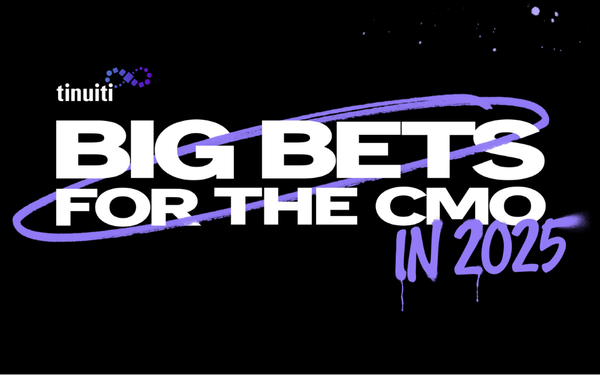
As 2025 tempts marketers to chase “the next big
thing,” this year’s biggest opportunities will not present themselves as massive leaps, but rather strategic moves that add up to sustainable impacts.
It’s no longer about
personalization, but rather being personal. There is a focus on agentic commerce -- a change in online shopping that involves AI agents having the capability to conduct autonomous decision-making as
well as learning and managing customer interactions, personalizing product recommendations, and optimizing pricing strategies.
The next growth spurt belongs to companies that enable
advertising and marketing to perform smarter through tests -- and, yes, AI. There is a shift in commerce, tied to how questions are asked and answered across generative AI (GAI), as well as a
nostalgic resurgence of traditional media.
advertisement
advertisement
Younger generations seek real, offline experiences in a hyper-digital world, with more turning to social for news and information on
products.
For advertisers and marketers, this means rethinking everything -- from pop-up experiences to the way they use TV and billboards to connect in an authentic way.
The key
is not to reinvent old strategies, but rather to adapt these channels to a new generation that craves the physical experience.
Another thing to consider is whether large language models
understand your brands. Similar to how the industry has thought about influencing organic algorithms across search, social and commerce, the way LLMs are trained for bots to talk about or recommend
products in response to a user's questions becomes critical.
Even as sources continue to shift, at the core will always be human experience and articulated affinity.
Tinuiti released a
report titled Big Bets for the CMO in 2025, a forward-thinking guide that identifies the most impactful trends that will shape marketing and media strategies in the coming year.
But Dalton
Dorne, CMO at the independent performance agency, took those thoughts a step further to describe what she sees in 2025 from Amazon, Google, Microsoft and others developing AI agents.
“What I love about this trend is it represents a leapfrog from one of our trends last year and it's cool to see this AI-fueled trend evolve so quickly,” Dorne wrote in an email to
MediaPost.
This time last year the industry focused on needing to understand how to market to the machine to generate consumer recommendations on bots like ChatGPT.
A year later, the
industry is experiencing AI agents handling purchases with minimal human impact for processes such as booking trips or event planning.
And they are catching on. Consumers are adopting this
technology faster than some marketers are testing.
Dorne pointed to Amazon’s Rufus, mentioning it in the same sentence as interactive agentic assistance.
“Amazon's
Rufus represents an interesting V1 here through the lens of planning considerations guiding product selection and recommendations,” she wrote. “While it stops short of handling
closed-loop planning, this is still a human behavioral limitation that will likely diminish as we get more comfortable using agents in this capacity."
Dorne added: "There is extensibility here
in the form of being an actual party planner where they are assisting with flowers, catering, entertainment, invites, gift registries.”
Another experience is with autonomous agents,
where the service may be complementary, such as with the Amazon Dash Button -- a form of simple mechanism of product replenishment where a user may never even confirm the products that have been
curated. Instead, they would share their preferences of previous transactions and information, and allow the agent to make decisions independently.
“Preference knowledge presents an
interesting challenge for brands, as it will rely on building brand awareness, but also in constant short form surveys.” Dorne wrote. “(I don't think it's too far from reality that we see
the formation of ‘Tinder-esque’ apps that enable ‘this or that’ preferences to be stored -- somewhat similar to how content recommendation algorithms operate on social media
platforms based on stop or swipe actions.”
Dorne also mentioned something she calls “preference awareness,” since this is really about the degree to which personalization can
be maintained without significant burden to the user, but it conforms to GDPR data regulations and the "the right to data portability" where brands must provide the ability for users to extract their
personal information and preference profiles.
“I see this as something that may come into U.S. privacy laws in the future that may enable a microeconomy of affiliates that exchange
promotional discounts for preference profiles,” she added. “This is very much futurecasting, but it does present an interesting use case beyond simply the value of identity
data.”